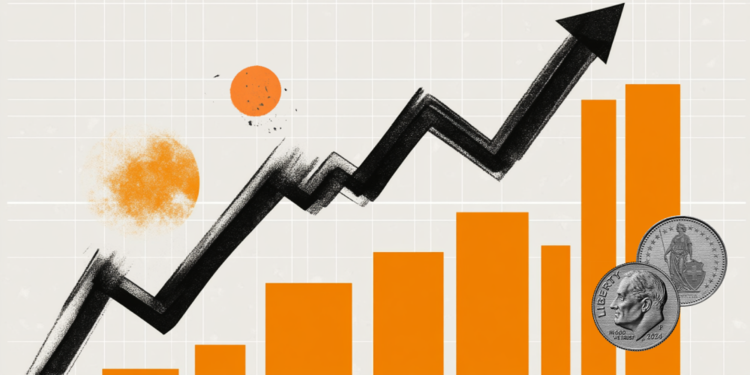If you follow the market news, you have probably heard that “stocks fall as inflation weighs on investors”.
At first glance, this is a perfectly reasonable thesis. In the United States, the world’s largest economy, inflation rates are still at 40-year highs and the Federal Reserve System (Fed, the US central bank) is serious about raising interest rates to combat them.
None of them are particularly good for business. Also, it’s natural to look for a quick and easy-to-digest explanation for major market moves.
But like most things in life, the impact of inflation on markets is not so simple.
Historically, high inflation alone has not been directly responsible for market downturns.
Inflation and US markets have a complicated relationship, and like most relationships, long-term stability is key. Investors hate surprises. They can work with high inflation, but they don’t like sudden, sharp rises in interest rates.
We’ve known this since at least 1983. That’s when Martin Feldstein, who has advised several US presidents and served as head of the National Bureau of Economic Research for three decades, determined that if we are to link inflation to stock prices, it is crucial to distinguish between high but constant inflation and the expectation that prices may rise more sharply in the future.
Even when prices are rising steadily, investors can deal with it by pushing stocks up in proportion to inflation, he said. It’s when economists sound the alarms about future price spikes that investors head for the exit.
High inflation plays an important role in market returns, said Michael Batnick of Ritholtz Wealth Management.
“There is a level where inflation starts to become a bigger part of the picture, but even more important than that is whether inflation is rising or falling,” he wrote.
Inflation of 6% indicates that inflation is high, he said, “but 6% below 8% indicates that inflation is high but falling, which the market likes.”
A recent analysis of market performance by the Leuthold Group found that when inflation is high, stocks tend to perform very well just after the rate peaks. When the inflation rate is 8% or higher (the US inflation rate is currently 8.6%), a slowdown in inflation is usually associated with a full year of equity gains, the study found.
Stocks can also provide pretty decent protection against inflation over the long term.
“We believe equities are one of the best places to be in a world of rising inflation,” wrote Tony DeSpirito, managing director of BlackRock, in a recent note.
BlackRock has analyzed the performance of stocks since 1920 and found that as long as inflation does not exceed 10%, stocks continue to perform relatively well. But he added that rising inflation and rates are also increasing volatility in equities, and investing is getting more complicated.
Investors can better prepare their portfolios to better deal with high rates of inflation. Value stocks, with more stable short-term cash flows, have an advantage over growth stocks in an inflationary environment, DeSpirito said.
The S&P 500 growth index, which tracks stocks with the best three-year growth in revenue and earnings per share, dropped nearly 15% last year. The S&P 500 Value Index, which tracks top-rated stocks, has dropped just 4.8% over the same period. The S&P 500 lost about 10%.
The energy sector also tends to outperform the rest of the market during periods of high inflation. The industry had an annualized return of 14% between 1968 and 1981 and is likely to have a huge impact on earnings estimates this quarter, according to the Wells Fargo Investment Institute.
Energy earnings in the S&P 500 are expected to grow nearly 205% this quarter, while analysts say the rest of the S&P 500 will drop 2%.
Health is also a plus, but the best protection against inflation is patience.
Between 1966 and 1981, a period that spans much of the stagflation era, investors in the US stock market lost more than 35% after adjusting for inflation, according to analysis by Ben Carlson, also of Ritholtz Wealth Management.
Those who resisted, however, ended up on top. Between 1966 and 1999, nominal annual returns were 12.3% against an annual inflation rate of 5%, leaving investors with real returns of 7.3% over 34 years.
Source: CNN Brasil
I am Sophia william, author of World Stock Market. I have a degree in journalism from the University of Missouri and I have worked as a reporter for several news websites. I have a passion for writing and informing people about the latest news and events happening in the world. I strive to be accurate and unbiased in my reporting, and I hope to provide readers with valuable information that they can use to make informed decisions.







